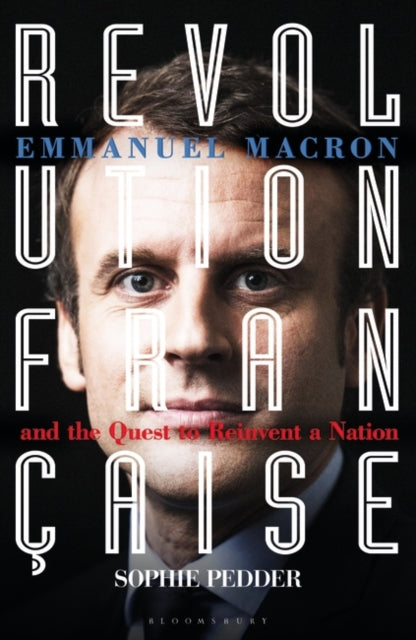
Revolution Francaise: Emmanuel Macron and the quest to reinvent a nation by Sophie Pedder
In 2012, Sophie Pedder climbed a back staircase in the Élysée Palace to visit a 34-year-old economic adviser to François Hollande by the name of Emmanuel Macron, said Simon Kuper in the New Statesman. Like almost everyone who has met him, Pedder, The Economist’s Paris bureau chief, was “charmed”: Macron conveyed the sense that while talking to her, “he had nowhere else more important to be”. She has interviewed him many times since, charting a meteoric rise – he became finance minister in 2014, broke with Hollande to form his own party, En Marche!, in 2016, and gained the presidency a year later. “Every journalist dreams of having a backstage source who becomes president”, and Pedder has put her luck to good use, plundering her notebooks to construct this “first-rate” book. While at times it “shades into hagiography”, Revolution Française is “a model biography” that helps to answer “two big questions: who is this man? And how will he change his country?”
Unlike many French politicians, Macron wasn’t born into the elite, said Agnès Poirier in The Times. His parents were “provincial, middle-class doctors”. It was his love of reading – cultivated by his grandmother – that “catapulted him to the top of his class”. Macron was a “self-sufficient teenager” who was happiest among adults, and this trait helps explain why, aged 16, he set his sights on Brigitte Auzière, a married drama teacher 24 years his senior. “Whatever happens, I will marry you,” he told her – and, remarkably, “he did”.
Even before entering politics, Macron – who claims to need only four hours’ sleep – had pursued multiple careers, said Michael Sheridan in The Sunday Times: as a “high-flying” civil servant and as a banker at Rothschild (where he earned s1m overseeing Nestlé’s takeover of Pfizer’s baby-food business). Within three years of his first ministerial appointment, he had destroyed the “old socialist and Republican political parties”. France was undoubtedly ready for a “reformist” president who could “free his country from the straitjacket of the overmighty state”, said Jonathan Fenby in The Economist. Yet how effective the “disrupter of 2017” will prove remains to be seen. His first reforms, streamlining labour laws, have gone “as well as could be expected”, but greater challenges lie ahead, and Macron’s self-confidence and “grand rhetoric” could easily “tip over into hubris”. At a time of escalating despondency about democracy, it is heartening to read this “fluently written” book that – for now at least – has a “good news story to tell”.
